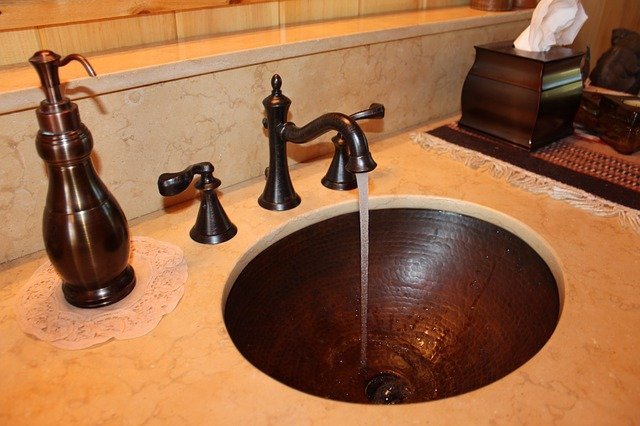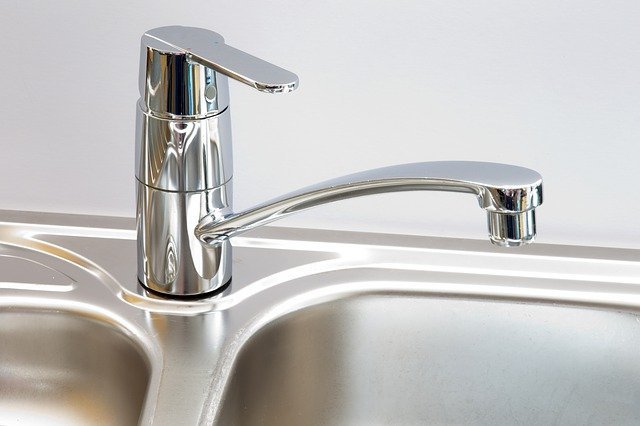Do you know much about the plumbing basics? What kind of skills do you already have? If you need to learn more about plumbing, keep reading for a few tips to give you a broader knowledge base.
If your pipes are so noisy that they sound like squeaking or hammering, you can easily solve this problem. If pipes are exposed, you must anchor them. If pipes are located in the floor, ceiling or walls, you might want to have a professional help you complete the project.
To prevent pipes from freezing, insulate all exterior pipes and be sure to keep your interior house temperature above freezing, even if the house is vacant. Pipes can freeze if they are exposed to temperatures below freezing. It takes time in order for thawing to occur so that you can have running water. However, frozen pipes often burst, which would cause a huge mess and an extremely big repair bill.
To deal with a frozen pipe, turn on the faucet closest to the pipe. This gives the water a place to exit as the pipe defrosts. This can prevent damage to your house because it lets the pressure that is in the pipe out, and keeps it from bursting.
Septic Tank
Pump out your septic tank at least every five years to keep it in proper working condition. This will keep sediment from building and causing backup into the house, and possibly causing the septic system to fail. Pumping a septic tank might cost a lot of money, but it will cost your more money to clean any back up in sewage you may have had, and replacing your septic tank costs even more!!
Pump out your septic tank every five years to keep it in proper working condition. While you may find it costly to get your septic tank cleaned out, it will cost you much more to clean up any sewage backup or to repair or replace your septic tank.
Knowing which tools to use and how you should use them is an important skill when it comes to plumbing. Use manuals and online sites to get informed before doing a plumbing project yourself. Plan thoroughly before attempting a repair. Mistakes can be very expensive to fix.
Knowing what tools and how to use them will make you much better at plumbing. Before undertaking repairs on your own, plan ahead, a mistake could make repairs even more costly.
You can resolve most toilet clogs yourself. Try a plunger first. If plunging the toilet doesn’t seem to clear up a clog, check the toilet’s water level. If it’s too low, try filling a bucket with warm water. Open the toilet’s tank, and pour the water in. Once the water is lower, do this again.
Don’t use any colored tablets in your toilet.These products may well remove odors, but they can seriously damage the rubber pieces in the toilet, which can prevent your toilet from functioning correctly.
Water from wells can cause orange or rust colored stains in places like bathtubs and sinks. This comes from large amounts of iron present in the water. This is something that needs to be taken care of by water softener, which you can buy at a store, or have a company come out to your house and take care of it for you.
If your toilet gets clogged, your plunger is not fixing it, and your water level inside of the toilet appears low, you may be able to resolve the problem by pouring a bucket of warm water into the toilet from waist level or higher. Repeat this procedure if necessary as the water goes back to a lower level.
To keep your garbage disposal lasting for a long time, make sure you clean it on a daily basis. Keep your garbage disposal fresh and running by using dish soap, cherry pits and lemon rinds regularly.
Check the floor for any give in order to be sure that there is no damage in the toilet to determine floor damage. You could save money if you catch these problems early.
Ensure overflow holes don’t have any debris in them. Overflow holes exist to act as a double check in case of an overfilling sink. That may seem unimportant – but it will become a problem if they are clogged. Clear overflow holes when doing periodic checks for problems and plumbing issues that should be addressed.
Use strainers on all drains to keep foreign objects and debris from getting through. The ones in the bathroom can be cleaned out on a regular basis.
Don’t use your toilet like a trash can, and you minimize potential problems. Don’t flush paper towels, diapers, cotton balls, tissues or any other materials besides toilet paper. These items don’t dissolve and can cause clogs. Also, you want to use the least amount of toilet paper to clean yourself.
You can prevent annoying odors and promote smooth operation by setting up a regular cleaning routine with lemon rinds, lemon peels, and cherry pits to get your garbage disposal clean and fresh and running well.
Enzyme-based cleaners are the best bet for unclogging stubborn clogged pipes. Enzyme cleaners contain bacteria that digest through solid sludge, making it weak enough to be flushed out. Some of the finest cleaners are enzyme cleaners.

Pour equal parts baking soda and vinegar down your bathtub drain once a month. Plug up the opening or cover it with a cloth while the chemical reaction takes place. Wait for a little while, then flush the pipes by pouring in a kettle full of boiling water. This procedure should clear pipes of accumulated hair and soap scum.
Always remember to keep your dryer’s lint trap clean. This will save you trouble, such as preventing fires. Regularly check your dryer’s lint trap to see if it has any tears or holes that could potentially damage your dryer, and clog up your plumbing.
Always have cold water when your garbage disposal. Cold water keeps blades and encourage a smoother disposal.
Prevention is the key to keeping your plumbing repair bills down. Drain clogs can be expensive and are actually a major repair, one of the most common ones, too. Loose hair is often the culprit if your drain keeps getting clogged. Use a drain cover to keep hair and other elements from going down your pipes. Taking the hair off of the screen and disposing of it is cheaper and easier than removing it from the pipes.
Don’t bother running water when the garbage disposal is used. It can even cause what you put down the disposal to stick, creating damage.
Try to avoid the use of dry cleaners as often as you can. Drain cleaners contain very corrosive chemicals that can damage pipes if used too frequently. Call a professional if you notice your drain is still clogged up.
Check your faucets outdoors for drips before the first winter arrives. If leaks are detected, this needs to be fixed before the temperature falls below freezing. Whatever the material of your pipes, very cold water pressure can make pipes crack. Even a small crack can cause a major flood in your home.
While you may not always have your choice of plumbers, you can use the Internet to research and review plumbers in your area. Though your insurer may determine the plumbing company that will work on your house, you still have the ability to look them up, read customer reviews and prepare for their visit.
Valves that get rarely used tend to fuse together. You have to turn them often to avoid sticking, and running water through them on a regular basis.
You have to always be aware of where the primary water shut off valve is in your home. The water meter should be located in its vicinity. Also, locate additional shut off valves for toilets, sinks, washers and any other device that runs off of your water supply. Show every family member where the valves are, and add markings showing how to turn them off in case of emergency.
You can make sure that their license is up to date and if people have complained about this specific contractor. If their credentials are not in order, you don’t want them working for you.
A lot of people do not know what to do about their plumbing issues so they pay a plumber big bucks! If you own a home, you need to at least be able to understand what a plumber is doing when he makes repairs. It will be more difficult to put one over on you if you become a better-educated client.
When installing a brand new water heater, be sure to reconnect the secondary pipe that sticks out from the drain pipe, reconnect it. It’s probably a recirculation pipe, and that does a tremendous job of keeping your water hot without wasting water along the way.
Figure out the size of the water tank you need, this will help you save some money on energy bills. Determining the correct tank size is a matter of estimating the water use by the people and appliances in your home.
There is no shortage of amateurs in the plumbing field, so if you’re a pro, consider adding an apprentice to your roster. This is a great way to hire inexpensive labor, and you may find it gratifying to pass on all the information you know to someone else.
If you are putting in a water heater make sure that the pipe that is connected to the drainage pipe is reconnected. This pipe is likely for recirculating hot water, which makes a significant difference in water-heater efficiency.
It’s easy to forget how hot it is when you are immersed in a project, but it’s still dangerous.
Use a pipe snake if your washing machine drain stack overflows. Lint can build up in the washing machine and cause a clog, which will lead to overflowing.
Have you learned a few things about plumbing? Do you know which type of plumbing your home has? Have your skills improved? Can you use components to your plumbing system now? Can you properly operate the equipment? Remember these tips to learn how to do plumbing yourself.
You can avoid unnecessarily heating your water by buying a new, tankless water heater. Tankless water heaters do not store any volume of water, unlike their conventional counterparts. Rather, these units only heat the necessary water as situations arise. This can save a lot of money on your energy bill because you don’t heat water that isn’t used.

